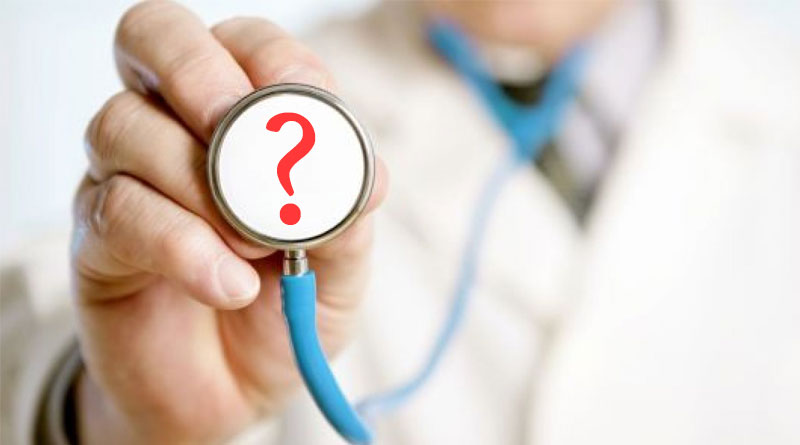Do you really know your healthcare provider?
Your health and safety should always come first. Never put yourself in the hands of unlicensed professionals.
By: Diana Bello Aristizábal
DORAL, FL – January is the month of changes and new goals. For this reason, during this season, many people are considering undergoing cosmetic procedures, taking blood tests, or visiting the doctor to get treatment for pain or discomfort they have been experiencing since last year.
If this is your case, you should know that in addition to looking for a competent professional that meets your demands and needs, it is vital that you find a place or person with a valid and active license to treat you, regardless of the field of said place/individual (cosmetic or medical).
Although this might sound obvious to many people, the reality is that the Unlicensed Activity and Fraud Program (ULA) of the Florida Department of Health, through the Medical Quality Assurance Unit, receives many complaints of unlicensed activity.
This unit is responsible for regulating the licenses of healthcare professionals in Florida, as well as investigating complaints, standards of care, diversion, and impairment on licensed healthcare professionals.
This means that you should not only verify that you are, in fact, taken care of by a licensed professional, but also that the treatment or procedure received is done so responsibly and under the parameters required by law.
Since this is a sensitive issue, please read the information below that will help you understand how to identify and report an unauthorized professional. It is a third-degree felony to practice, attempt, or offer to practice a health profession without a license. There is a penalty of at least $1,000 fine and one-year incarceration, among other penalties, for those who fail to follow through.
Watch, evaluate, and ask questions.
According to the Florida Department of Health, when it comes to determining if a healthcare provider is operating without a valid and active license, several aspects have to be considered.
The first one is the way in which the medical or cosmetic center and/or the health professional promotes its business. Unlicensed providers do little advertising; their signage looks like it’s temporary, they lack a website or online advertising or use unsavory webpages to advertise.
It is common for unlicensed providers to get their clients or patients by word of mouth or the ‘friend of a friend.’ This doesn’t mean that authorized healthcare professionals cannot make themselves known in this way, but they normally combine referrals with the use of other more visible and massive means of advertising.
 About this, it should be noted that a healthcare service provider is required to include its license number in any piece of advertising.
About this, it should be noted that a healthcare service provider is required to include its license number in any piece of advertising.
In addition to the above, another thing to consider is the facility where the services are being offered, as well as the conditions. Unlicensed providers operate out of a home or garage or complete medical procedures in a non-conventional facility.
Other red flags include medical supplies and/or equipment missing or lacking, use of common household items (i.e. supplies from Home Depot, Lowes or other hardware stores), absence of unexpired licenses, degrees, inspections or certificates posted on the walls, and the staff is evasive when asked about them; and uncleaned and disorganized spaces.
It should be clarified that according to the requirements of the Florida Department of Health, healthcare providers must hold and display licenses from Florida state and not from others.
With regard to specific niches in the healthcare industry, there are also signs to be considered. Unlicensed providers in the dental one, for example, come to their patients or use portable dental equipment.
Also, be aware of pharmacies that do not have a licensed pharmacist on staff or surgical centers that have surgical assistants in lieu of a Physician.
As for the cosmetic plastic surgery industry, according to the Miami Society of Plastic Surgeons, it is recommended to ask several questions before selecting the right professional.
Some of them are: Is the professional Board certified by the American Board of Plastic Surgery? In which hospital are the procedures performed? And does the hospital have a telephone number where you can verify the accuracy of what the service provider indicates?
According to the organization, the value of a physician plastic surgeon Board Certified by the American Board of Plastic Surgery lies in the fact that the professional meets nationally recognized standards for education, knowledge, skills, and experience.
In this way, the professional not only has a license to operate but also has specialized medical and safety training, peer recognition, and the experience necessary to guarantee the best outcome in plastic surgery.
In this line, costs should also be highly analyzed. If it’s too good to be true, it probably is. It’s suspicious to be charged with amounts well below the average market prices.
Other alarm signals that apply to all healthcare providers are: Accepting only cash for the payment of treatments and procedures, not accepting any type of medical insurance, and having office staff dressed unprofessionally.
If you suspect that a specific healthcare provider (individual or business) doesn’t hold a real, active, and valid license, the first step is to verify whether or not your suspicion is correct through the Florida Department of Health’s website in the ‘Licensing & Regulation’ section.
Remember to verify not only the business licenses but that of the individuals who provide the services as often times businesses are legitimate and hire licensed doctors, but other providers within the facility are unlicensed such as those who operate equipment, Botox, laser treatments or dispense medications.
To report individuals or businesses that operate without a license, call 1-877-HALT-ULA (425-8852), send an email to HaltULA@FLHealth.gov or go to www.FLHealthSource.gov/ULA and www.flhealthcomplaint.gov/

